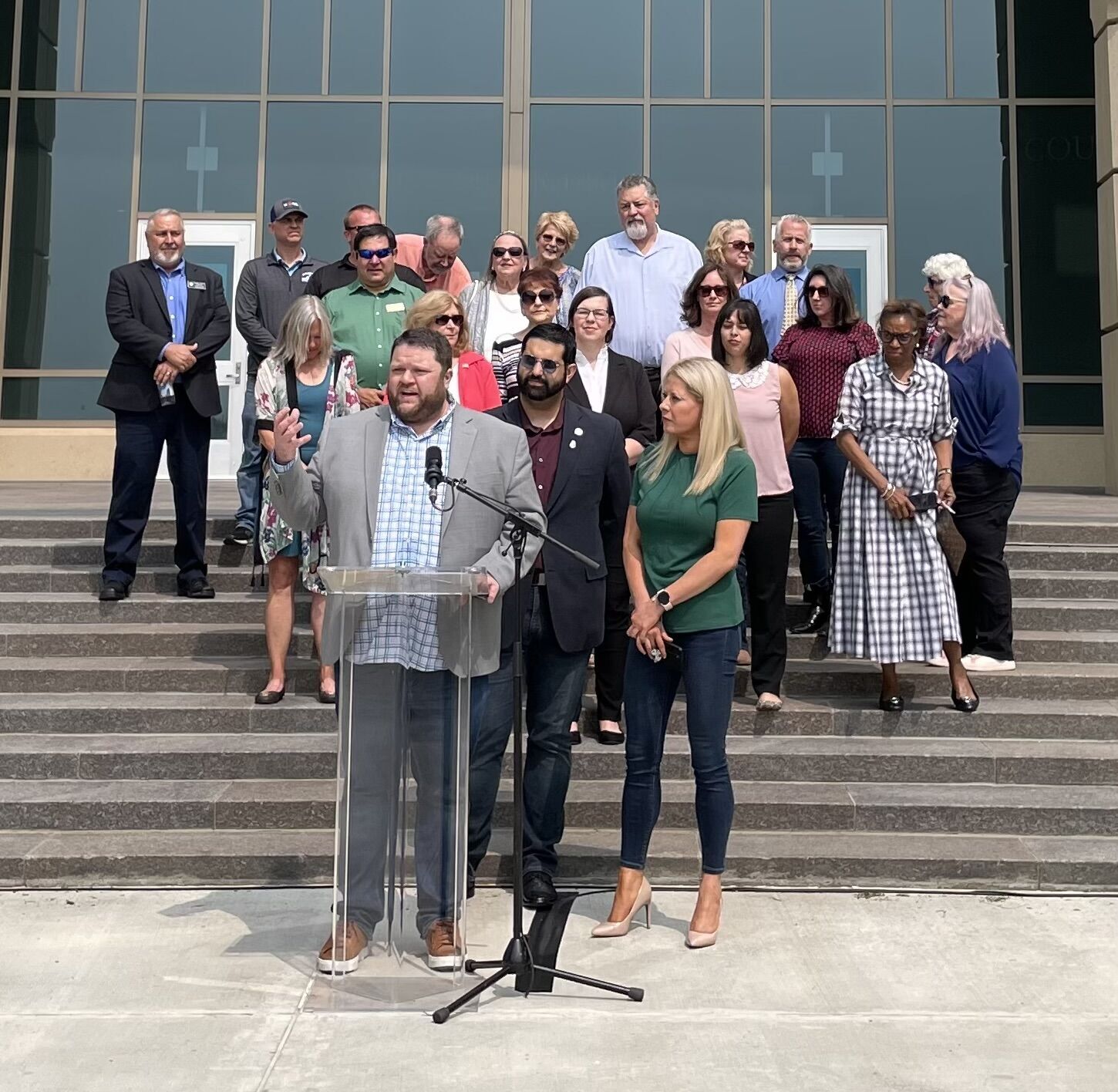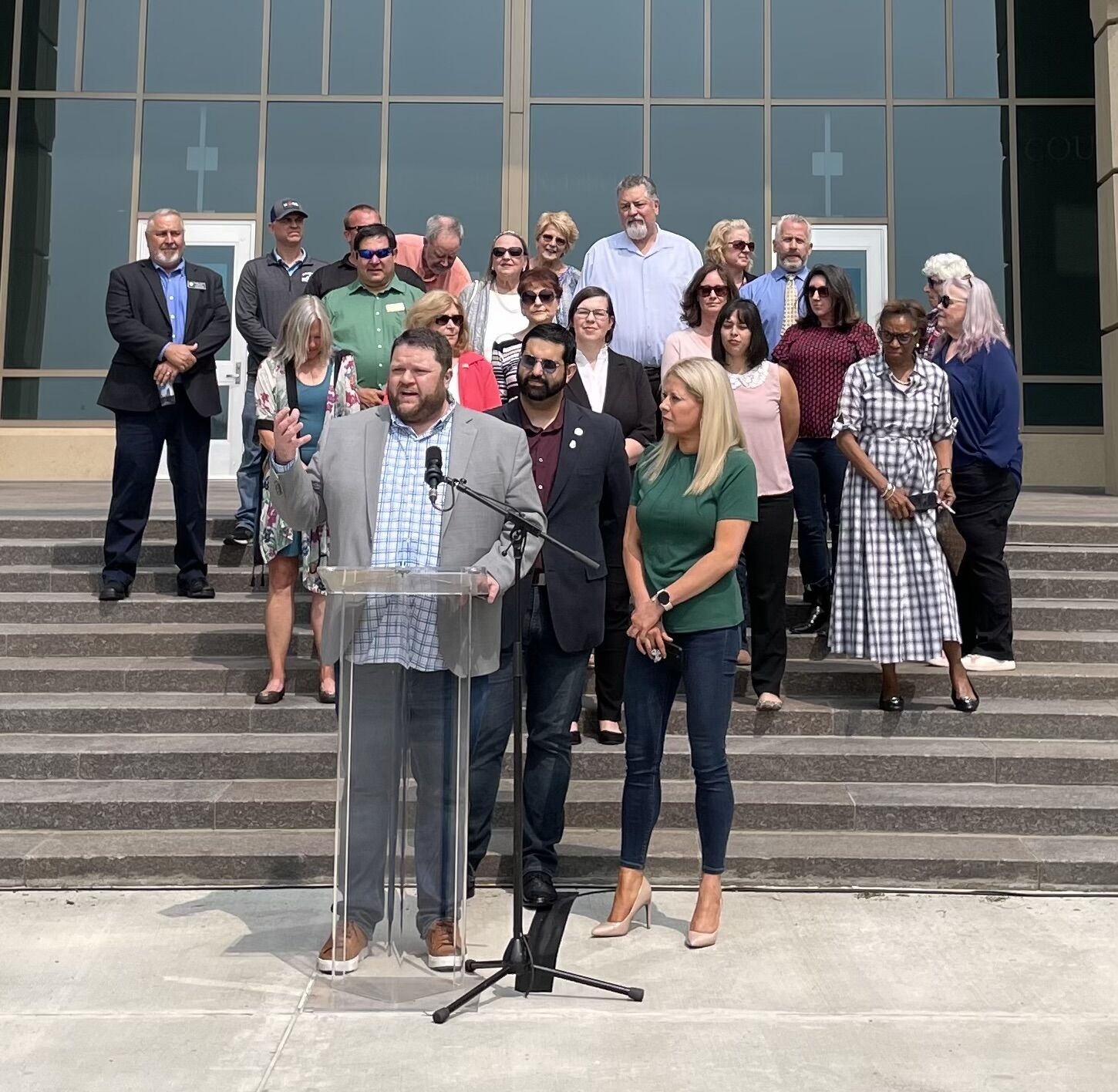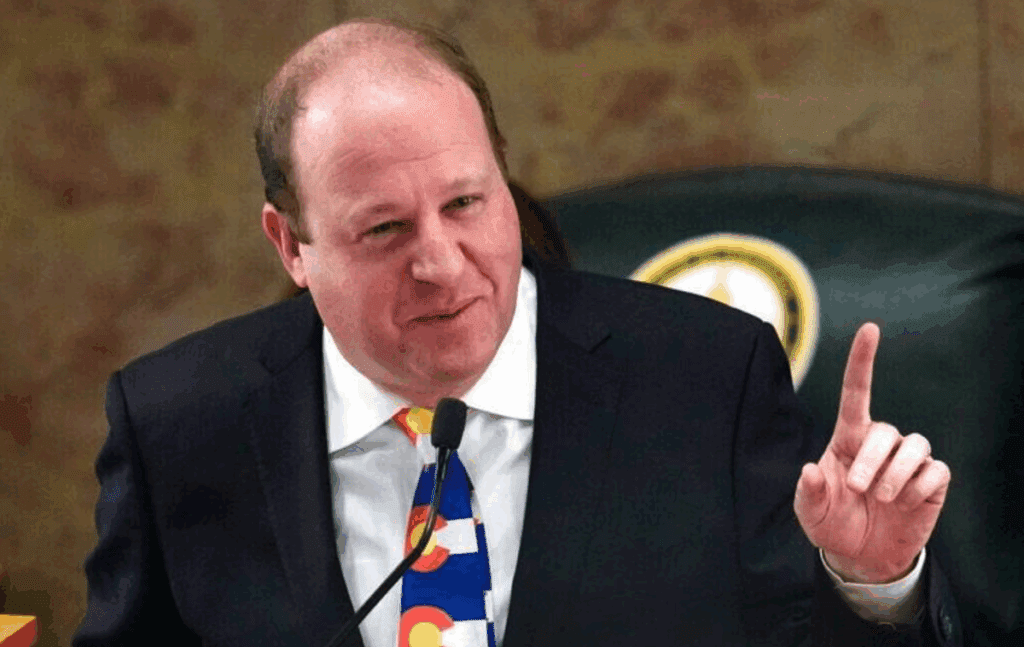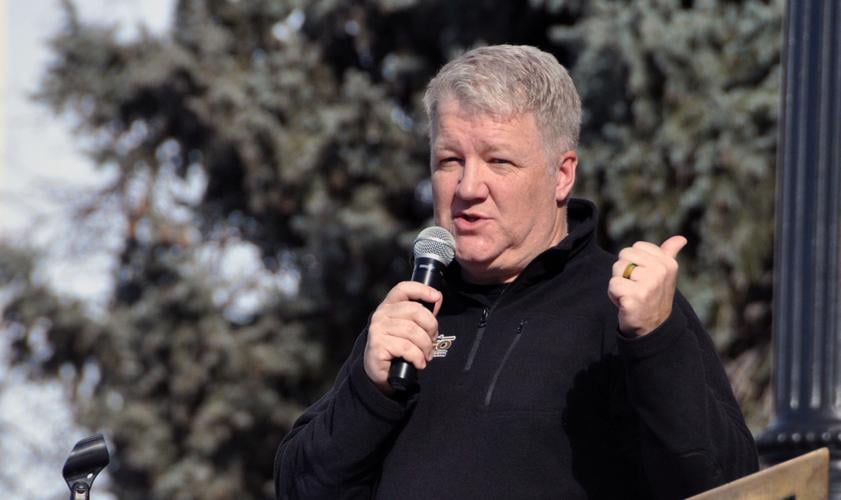Aurora clerk evaluates ‘strong mayor’ petition, other charter amendments advance

The city clerk in Aurora will soon begin assessing whether an initiative to instate a strong mayor system in the city has secured enough petition signatures to put a question on the November ballot.
The move requires amending the city charter, which must get voter approval.
Meanwhile, voters will likely decide on three other charter amendment questions requested by the city’s police and fire departments, after bills to forward the changes to voters got early approval from the city council this week.
A flurry of several other charter amendments proposed by councilmembers were shot down by a majority of their colleagues earlier this month. Here’s a look at where each proposal stands now.
‘Strong mayor’ initiative
The group “Term Limits for a Better Aurora” was asked to begin submitting their petitions to the clerk for review by June 6. They must produce more than 12,000 valid signatures to make the November ballot. Under the city code, the group has 120 days from the date it received the city clerk’s approval to begin circulating petitions – which was May 3 – to collect signatures.
But a series of steps have to take place after they hand over signatures to the city clerk before the question could be approved for the ballot. All ballot questions for the November election must be certified by Sept. 8, and the process for the city clerk to verify signatures on ballot initiative petitions can take 30 days alone. That’s also a decision that can also be challenged in court, drawing out the process further.
The question, if it were to make the ballot and gain voter approval, would significantly overhaul the city’s form of government, add an at-large councilmember seat, and trim term limits in Aurora from three consecutive terms down to two consecutive terms.
Term Limits for a Better Aurora is seeking to replace Aurora’s council-manager form of government, which relies on a professional city manager to run the city administratively, with a “strong mayor” system. In such a system, the city manager position is eliminated and replaced with a mayor, who then wields executive powers and is charged with overseeing the city’s administration.
Foes say the strong mayor system would vest far too much power in one person and accuse the Term Limits for a Better Aurora group of misleading voters into signing their petitions by presenting the campaign as a way to set term limits, rather than as a change the city’s governance structure.
Proponents maintain that the city has grown to a size in which the mayor should be held accountable to voters through an election, and that a “strong mayor” system will curb bureaucracy in city hall. They also insist that the measure’s “full language” is on the petitions and signature gatherers have had “extensive conversations” with voters about term limits and “limiting the power of an unelected bureaucrat city manager.”
Police and fire amendments
Earlier this week, the city council gave initial approval to placing three other questions on the November ballot that will ask voters to approve charter amendments proposed by the city’s police and fire departments.
The proposals have not yet received final council approval but were passed on first reading at the June 12 council meeting. Mayor Pro Tem Curtis Gardner dissented on two of the three amendments. Interim police Chief Art Acevedo and other APD leadership presented the plans to the full council at the June study session and regular meeting.
One question related to the probation and promotion of officers would do three things: It would change the charter to avoid scenarios in which officers might be on light or restricted duty while also on probation by allowing the chief to extend the probationary period so the department can evaluate officers while they perform their normal level of duties.
The question would clarify charter language referring to protected classes.
Finally, it would allow the chief to pass over officers up for promotions if the chief has a specific, and not arbitrary, reason. Officers could appeal the chief’s decision to the civil service commission.
A second question would also request three key changes: The amendment would clarify that officers demoted from ranks, such as division chief or commander, would return to their last civil service protected rank. It would afford the department more flexibility to add command officers as the department grows in size. The question would also clarify that the chief must become a certified peace officer in Colorado within six months if they take the job from out-of-state.
A third question would allow lateral hires within the department who have at least five years of experience to be credited with two of those years after joining APD, allowing them to be promoted after three years of service within the department. The question would also eliminate a rule saying APD cannot hire more lateral officers than new officers within the same calendar year.
Failed proposals
The city council was divided on several other proposed charter amendments brought forward by members of the Charter Review Ad Hoc policy committee. The measure would also have made significant changes to local elections and city governance.
The amendments would have updated the charter with “gender-inclusive” language, moved municipal elections to even years, made council races partisan, made council seats full-time, and established a new way of filling council vacancies.
A majority of councilmembers voiced opposition to the proposals as written at the council’s June study session, and they also postponed a decision on the gender-neutral language proposal. The suggested amendments would replace male pronouns used to refer to the city manager with gender-neutral pronouns, as one example.
The proposal to make council races partisan, sponsored by Councilmember Juan Marcano, drew heavy scrutiny from critics on the council who said it risked opening the door for candidates from “fringe” parties to register with a major party and mislead voters about their affiliation.
Councilmember Francoise Bergan said local offices should be focused on issues, such as fixing roads, maintaining water supplies, and public safety, without taking a partisan approach.
“I think it’s terrible to want to make local politics partisan,” she said.
Marcano said the idea would make council elections more transparent because partisanship already plays a heavy role in local elections, and that it would better inform voters about candidates.
Commenting on all proposals as a group, Mayor Pro Tem Gardner commented said he would oppose them because the “process has been incredibly rushed.” Past amendments received years of study and preparation, he said, and none of the proposals to him appeared fleshed out.
A citizens committee that also reviewed the proposed amendments declined to make recommendation to council, saying it did not have enough time to evaluate the changes.
“I haven’t seen a good reason why any of these things needs to change,” Gardner said.











